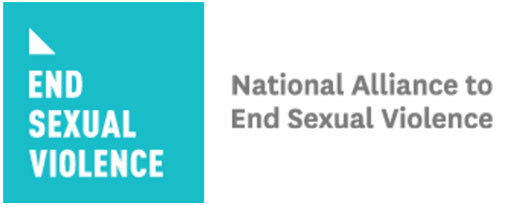On February 12, 2013, the United States Senate passed S. 47, the reauthorization of the Violence Against Women Act (VAWA). On February 28th, the House followed suit and also passed S. 47. On March 7th, President Obama signed S. 47 into law. Here are the major provisions in VAWA that relate specifically to sexual assault coalitions and rape crisis centers.
Definitions and Universal Grant Conditions:
• Adds a definition of rape crisis centers that can include a governmental organization in certain limited situations (mainly for purposes of SASP formula grant funding).
• Improves the definition of sexual assault to include situations in which the victim lacks capacity to consent.
• Creates a conferral process for OVW with state coalitions regarding grant administration, unmet needs, promising practices and emerging trends.
Audit Requirements:
• Requires the Inspector General (IG) of DOJ to conduct audits.
• Gives the IG discretion to determine the number of audits needed.
• Excludes grant recipients with unresolved audit findings from receiving grant funds for two years. An unresolved audit finding means a finding in the final audit report of the IG that the grantee has utilized grant funds for an unauthorized expenditure or unallowable cost that is not closed or resolved within 12 months from the date when the final audit report is issued.
STOP Formula Grant Program:
• Creates new STOP purpose areas related to SARTs; criminal justice policies, protocols and training to investigate sexual assault; addressing the needs of incarcerated victims; and rape kit backlogs.
• Strengthens the STOP planning process including requiring meaningful consultation with the state sexual assault coalition.
• Requires that, not later than two years from now, states dedicate 20% of their STOP funds for programs or projects in two or more allocations (law enforcement, prosecution, victim services, and/or courts) that meaningfully address sexual assault, including stranger rape, acquaintance rape, alcohol or drug-facilitated rape, and rape within the context of an intimate partner relationship.
• Allows reallocation if funding is not used in one of the allocations.
• Requires states to pay for the sexual assault forensic examination directly removing the ability of states to reimburse victims for costs of the exam. States have 3 years to come into compliance with the slight modification of the certification. The certification also now requires coordination with health care providers to notify victims of the availability of rape exams at no cost.
Arrest Grant Program:
• Adds victim service providers including state coalitions as allowable grantees provided they partner with the state or a unit of local government.
• Adds new purpose areas related to SANEs; SARTs; the criminal justice response to sexual assault; HIV testing, counseling and prophylaxis projects for victims; and rape kit backlogs.
• Sets aside 25% of funds for projects that address sexual assault, including stranger rape, acquaintance rape, alcohol or drug-facilitated rape, and rape within the context of an intimate partner relationship.
Sexual Assault Services Formula Grant Program:
• Alters the funding formula slightly to treat D.C. and Puerto Rico the same as states. The remaining territories receive an increase in their base amount of SASP from .125% to .25%. States will receive about a 3% decrease in their SASP allotment as a result of this change.
Rural Grant Program:
• Creates a new sexual assault purpose area fordeveloping, enlarging, or strengthening programs addressing sexual assault, including sexual assault forensic examiner programs, SARTs, law enforcement training, and programs addressing rape kit backlogs.
Rape Prevention and Education Program:
• Creates RPE baseline funding for states, D.C. and Puerto Rico of $150,000. Creates a minimum allocation of $35,000 for the remaining territories. The language further states that any unused or remaining funds shall be allotted to each State, the District of Columbia, and Puerto Rico on the basis of population.
Housing:
• Protects victims of sexual assault in public housing for the first time. States that a victim of sexual assault who is a tenant in public housing may not be denied admission to, denied assistance under, terminated from participation in, or evicted from the housing on the basis of the victimization.
• Directs public housing agencies to adopt a model emergency transfer plan for use by agencies and owners or managers for tenants who are victims of sexual assault to transfer to another available safe dwelling if the transfer is requested, the tenant feels threatened with imminent harm or was assaulted on the premises in the past 90 days.
SAFER:
• S. 47 also included the SAFER Act which creates two new purpose areas for Debbie Smith Grants to state and local governments.
• Creates a purpose area to conduct audits of the samples of sexual assault evidence that are in possession of a state or local government agency and at least 5% and not more than 7% of the grant funds must be allotted for this purpose. It also adds requirements for reporting about the audit and extent of the backlog.
• Creates a purpose area to ensure that law enforcement collection and processing of DNA evidence related to sexual assault and other violent crimes is carried out appropriately.
• Requires the Director of NIJ to develop protocols and practices for the effective collection and processing of DNA evidence, including sexual assault cases and to provide technical assistance to grantees.
Trafficking Victims Protection Reauthorization Act
• S. 47 also includes the TVPRA which reauthorizes key federal anti-trafficking programs for the next four years; provides for new partnerships with cooperating countries to protect children and prevent trafficking; adds new protections for human trafficking victims; and provides new tools to prosecutors to go after the traffickers who exploit others.
HAVE ADDITIONAL QUESTIONS?
Contact Terri Poore, Policy Chair at (850) 228-3428 or terri@endsexualviolence.org.


